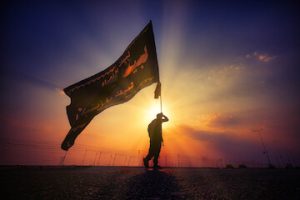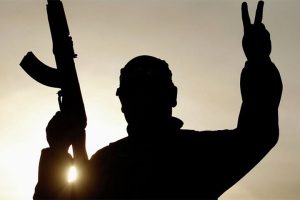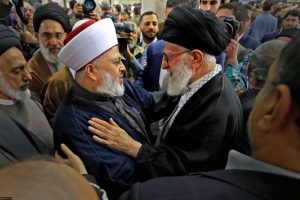The geopolitical landscape of the Middle East is undergoing a profound transformation. A palpable shift in consciousness and action, often termed the Awakening of Islamic countries, is reshaping responses to Israeli policies, particularly in the wake of the devastating Gaza conflict.
While resistance to Israeli occupation and support for Palestinian rights have long been central tenets in the Muslim world, recent years – and especially months – have witnessed an intensification, a broadening, and a deepening of this sentiment.
Iran, positioning itself as a vanguard, exemplifies one facet of this complex phenomenon, but the Awakening of Islamic countries extends far beyond a single nation, manifesting in diverse ways across the region and the global Muslim community. This article explores the drivers, expressions, and implications of this significant shift.
Awakening of Islamic Countries: Defining the “Awakening”: Beyond Mere Rhetoric
The concept of an Awakening of Islamic countries implies more than transient anger or routine condemnation. It suggests:
-
Heightened Consciousness: A deeper, more widespread understanding of the Palestinian issue’s centrality and the mechanisms of Israeli occupation and expansion.
-
Intensified Emotional Investment: Moving beyond diplomatic platitudes to genuine outrage, grief, and solidarity fueled by unprecedented media access to the realities of conflict.
-
Increased Mobilization: Mass protests, robust civil society campaigns, consumer boycotts, and significant diplomatic pressure becoming commonplace.
-
Strategic Reassessment: Governments and populations reevaluating relationships with Israel and its allies, questioning the costs of normalization or silence.
-
Search for Agency: A drive to move beyond symbolic support to tangible actions perceived as capable of challenging Israeli impunity and advancing Palestinian rights.
This Awakening of Islamic countries is not monolithic. It takes different forms in different contexts, driven by unique national histories, political systems, and societal structures. However, the common thread is a rejection of the status quo and a demand for change.
Iran: State-Sponsored Resistance and Regional Projection
Iran presents the most structured and state-driven expression of this awakening vis-à-vis Israel:
-
Ideological Bedrock: Opposition to Israel (“Little Satan”) and support for Palestinian liberation are fundamental pillars of the Islamic Republic’s revolutionary ideology, framed as a religious duty and anti-imperialist struggle.
-
“Axis of Resistance”: Iran has systematically built and supported a network of proxy forces across the region – Hezbollah in Lebanon, Hamas and Islamic Jihad in Palestine, various Shia militias in Iraq and Syria. This network provides Tehran with strategic depth and the means to project power and pressure Israel indirectly. The October 7th Hamas attack and the subsequent Gaza war are viewed within Iran as a manifestation of this axis’s potency and a direct outcome of the Awakening of Islamic countries it seeks to lead.
-
Rhetorical Vanguard: Iranian leaders and state media relentlessly condemn Israel, frame the conflict in stark religious and anti-colonial terms, and position Iran as the only state truly committed to confronting “Zionist aggression.” This resonates strongly with populations across the Muslim world frustrated by their own governments’ perceived inaction.
-
Military Posturing: Direct confrontations, like the April 2024 missile and drone exchanges, while calibrated to avoid all-out war, serve to bolster Iran’s image as the primary regional counterweight to Israel and a key actor in the Awakening of Islamic countries. However, this posture also fuels regional tensions and sectarian narratives.
While Iran leverages the Palestinian cause for its own strategic goals, its unwavering stance undeniably fuels and shapes the broader regional discourse, providing a model of active resistance for some and a source of concern for others.
Beyond Iran: The Grassroots Surge Across the Muslim World
The true breadth and depth of the Awakening of Islamic countries is most evident beyond state actors:
-
Unprecedented Popular Mobilization:
-
Mass Protests: From Jakarta to Istanbul, Cairo to Tunis, London to Dearborn, millions have taken to the streets repeatedly since October 7th. These are not small activist gatherings but massive, sustained demonstrations cutting across class, age, and often sectarian lines, reflecting profound popular anger. This scale and persistence signal a core element of the Awakening of Islamic countries.
-
Civil Society Activism: NGOs, student groups, professional associations, and religious organizations have intensified campaigns focused on Palestinian rights, humanitarian aid, documenting Israeli actions, and lobbying governments.
-
-
The BDS Movement Resurgence: The Boycott, Divestment, and Sanctions (BDS) movement has gained unprecedented traction. Consumer boycotts targeting brands perceived as supporting Israel (e.g., McDonald’s, Starbucks) have had measurable financial impacts in numerous Muslim-majority countries and beyond. This represents a tangible, decentralized form of economic pressure driven by the Awakening of Islamic countries at the grassroots level.
-
Digital Activism & Information Warfare: Social media has been instrumental in bypassing traditional media gatekeepers, disseminating raw footage from Gaza, organizing protests, and applying public pressure. Hashtags like #GazaGenocide trend globally. This digital space fosters a sense of shared outrage and collective identity across borders, accelerating the Awakening of Islamic countries.
-
Religious Discourse and Solidarity: Mosques and religious leaders have played a significant role in framing the conflict, invoking Islamic principles of justice, condemning oppression, and mobilizing communities for prayer, charity, and protest. The plight of Al-Aqsa Mosque remains a potent symbol. This religious dimension is intrinsic to the Awakening of Islamic countries.
-
Shifting Diplomatic Dynamics:
-
Public Pressure on Governments: Populations in countries with normalization deals (e.g., UAE, Bahrain, Morocco) or close ties to the West (e.g., Jordan, Egypt) have exerted immense pressure on their governments to take stronger stances against Israel, recall ambassadors, or suspend agreements. This domestic pressure is a direct consequence of the Awakening of Islamic countries.
-
UN Actions: Muslim-majority states have been central to efforts at the UN calling for ceasefires, humanitarian access, and accountability for Israel, reflecting collective diplomatic pressure fueled by the awakening.
-
South Africa’s ICJ Case: While not a Muslim-majority nation, South Africa’s landmark case accusing Israel of genocide at the International Court of Justice received strong backing from numerous Islamic states and was hailed as a victory for the global movement for justice, embodying the spirit of the Awakening of Islamic countries.
-
Drivers of the Awakening: Why Now?
Several factors converge to explain the intensity and scale of the current Awakening of Islamic countries:
-
The Gaza War’s Brutality: The sheer scale of death, destruction, and humanitarian catastrophe in Gaza – witnessed in real-time – has been a catalyst unlike any other. Images of dead children, leveled neighborhoods, and desperate families have evoked unprecedented levels of horror and empathy.
-
Israeli Government’s Right-Wing Shift: The policies of the most right-wing government in Israel’s history – aggressive settlement expansion, inflammatory rhetoric, the judicial overhaul perceived as eroding democracy, and the conduct of the Gaza war – have eroded international goodwill and hardened opposition.
-
Perception of Western Complicity: The unwavering military and diplomatic support for Israel from key Western powers, particularly the US, despite mounting evidence of potential war crimes and the ICJ’s provisional measures, is seen as enabling the violence and exposing double standards on human rights. This fuels anti-Western sentiment alongside anti-Israel sentiment.
-
The Failure of the “Peace Process”: Decades of a stagnant, US-led peace process perceived as biased towards Israel have disillusioned populations. The two-state solution seems increasingly unattainable due to settlement expansion, leading to demands for new paradigms and more assertive action.
-
The Power of Social Media: Unfiltered access to information and imagery from Palestine, and the ability to organize globally, has overcome traditional media narratives and state censorship in many places, directly fueling the Awakening of Islamic countries.
-
Generational Shift: Younger generations across the Muslim world, less bound by Cold War alliances or older diplomatic constraints, are more vocal, globally connected, and demanding accountability.
Iran’s Role: Catalyst or Complicator?
Iran actively seeks to position itself as the leader of this Awakening of Islamic countries. Its support for armed proxies provides tangible resistance, and its rhetoric resonates with those frustrated by Arab state inaction. However, its role is deeply contested:
-
Sectarian Divides: Iran’s Shia identity and its regional ambitions fuel sectarian tensions, alienating many Sunni Arabs who oppose Israel but distrust Iranian hegemony. This complicates the notion of a unified Islamic awakening.
-
Proxy Agenda: Iran’s use of proxies often serves its own strategic interests (countering rivals like Saudi Arabia, expanding influence) as much as, or more than, pure Palestinian liberation. Actions by these groups can sometimes escalate conflicts in ways detrimental to Palestinian civilians.
-
Regime Legitimacy: Domestically, the Palestinian cause is used to bolster regime legitimacy and divert attention from internal challenges. This instrumentalization can be seen as cynical by some.
-
Escalation Risks: Iran’s confrontational stance, while popular with its base and some regional actors, carries high risks of catastrophic regional war.
Thus, while Iran is a significant actor within the broader Awakening of Islamic countries, it is not synonymous with it. The grassroots mobilization across diverse Sunni-majority nations operates largely independently of Iranian direction.
Challenges and the Path Forward
The Awakening of Islamic countries faces significant hurdles:
-
Fragmentation: Despite shared goals, deep political, sectarian, and strategic divisions exist among Muslim-majority states and populations, hindering unified action.
-
State Repression: In some countries, governments actively suppress pro-Palestinian activism to maintain relations with the West or Israel.
-
Limited Leverage: While BDS and protests raise awareness and cost, they have yet to fundamentally alter Israeli policy or US/Western support.
-
The Normalization Dilemma: The Abraham Accords, though strained, persist. Balancing popular anger with state interests remains difficult for signatory governments.
-
The Risk of Extremism: Heightened tensions and violence can create fertile ground for extremist groups, potentially hijacking legitimate resistance.
-
Defining “Success”: What constitutes a successful outcome for this awakening? Ending the occupation? A viable Palestinian state? Greater regional accountability for Israel? Clarity on goals is needed.
An Enduring Shift in the Regional Consciousness
The Awakening of Islamic countries represents a powerful and likely enduring shift in the Middle East’s political and social landscape.
It is characterized by a profound rejection of Israeli policies, deep disillusionment with Western complicity, and a demand for agency in confronting injustice.
Iran plays a prominent, albeit controversial, role through its state ideology and support for armed resistance, but the awakening’s true strength lies in the massive, sustained grassroots mobilization across diverse Muslim societies –
from the streets of Jakarta to the universities of Jordan, the boycott movements in the Gulf, and the diplomatic initiatives at the UN.
This Awakening of Islamic countries is not merely a reaction to the Gaza war but the culmination of decades of accumulated grievances and failed policies.
It signifies that the Palestinian cause remains a potent unifying force capable of mobilizing millions and challenging governments. While its ultimate impact on Israeli actions and the trajectory of the conflict remains uncertain, it has irrevocably altered the regional discourse.
The genie of mass popular consciousness and action, central to this Awakening of Islamic countries, cannot be easily put back in the bottle.
It ensures that the question of Palestine will continue to resonate with unprecedented force across the Islamic world, demanding attention and action from both regional powers and the international community.
The Awakening of Islamic countries is a defining reality of the contemporary Middle East, a force that will continue to shape the region’s future and its relationship with Israel for decades to come.
source: raialkhalij



